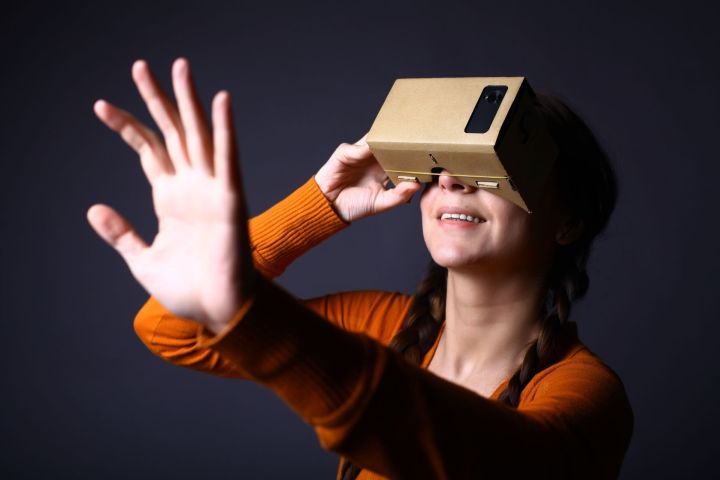

Perhaps the best evidence has come in the form of an premature placeholder in the Google Play Store Developer Console, the webpage from which developers set the pricing, services, and listing information of apps they’ve published to the Play Store. As first noted by Android Police on Friday, some publishers briefly gained the option to set pricing and distribution rules for “Android VR” devices — a likely reference a VR-tuned variant of Google’s Android mobile operating system.

According to Peter Rojas, co-founder of popular tech blogs Gizmodo and Engadget, the headset is “less powerful” than peripherals like the HTC Vive and Oculus Rift, both of which require powerful computers to operate. But it delivers an experience superior to Samsung’s smartphone-powered Gear VR, he said, and in addition runs an operating system called “Android VR.”
Android VR will definitely be announced next week, and from what I’ve heard will be less powerful than the Vive or Rift.
— Peter Rojas (@peterrojas) May 11, 2016
The new tidbits seem to corroborate reports from the Wall Street Journal, The Information, and the Financial Times that Google intends to release an advanced VR headset — one with mobile “chips, lenses, sensors,” and motion-sensing positional cameras — to the general public later this year.
It also adds to a growing body of evidence that the next major version of Android, Android N, will support VR in a major fashion. Android Police reports that Android N could include a home screen or launcher designed specifically for VR apps, games, and videos. And last month, Ars Technica uncovered code within the Android N Developer Preview that makes reference to a “VR mode” and “VR Listener,” components of an unfinished “virtual reality mode” with the internal development codename “Mirage.” Tidbits have been spotted elsewhere: this week, game engine Unreal Engine received a beta update, 4.12 Preview 3, with an accompanying change log that makes specific mention of “AndroidVR.”
Short of leaked renders or photos, of course, there’s no telling which form the rumored Android-powered VR headset might take, exactly. And it’s unclear to what exact it will incorporate Google’s Project Tango, a technology capable of producing a three-dimensional map of an indoor space and overlaying animations and digital imagery. But one thing’s for certain: Google’s made its VR ambitions known. It created a division dedicated to VR development and research in January, and in May of last year unveiled Jump, a cloud-powered platform for 360-degree video.
Updates:
Updated on 05-13-2016 by Kyle Wiggers: Added an alleged screenshot of Android VR placeholder image on the Google Play Store, plus Unreal Engine rumors.


